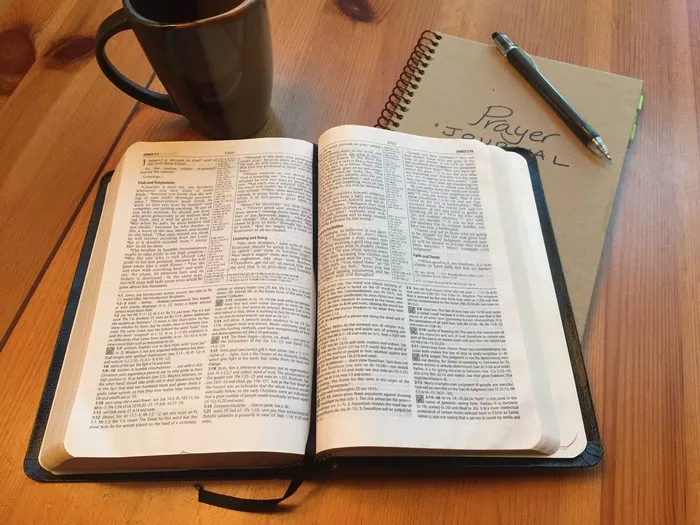In the realm of spiritual practices, the question of timing often arises: is it better to engage in devotions in the morning or at night? While the answer may vary depending on individual preferences and schedules, there are compelling arguments for both sides. This article aims to explore the benefits and considerations associated with morning and nighttime devotions, ultimately guiding readers toward a decision that aligns with their spiritual journey.
Morning Devotions: Embracing the Dawn of Spiritual Awakening
For many individuals, morning devotions hold a special significance. Starting the day with prayer, meditation, scripture reading, or other spiritual practices can set a positive tone for the hours ahead. Here are some key reasons why morning devotions are favored by some:
Fresh Start: Mornings symbolize new beginnings. Engaging in devotions at the start of the day allows individuals to leave behind the challenges and worries of yesterday, embracing the promise of a new day filled with opportunities for growth and spiritual connection.
Mindfulness and Focus: The early hours of the day are often characterized by tranquility and stillness. By dedicating this quiet time to devotions, individuals can cultivate mindfulness and focus, setting a positive tone for the rest of the day.
Alignment with Circadian Rhythms: Research suggests that our biological rhythms, known as circadian rhythms, influence our cognitive functioning and emotional well-being. For many people, the morning hours coincide with peak alertness and cognitive clarity, making it an optimal time for engaging in spiritual practices that require deep reflection and contemplation.
Priority Setting: By prioritizing devotions in the morning, individuals signal the importance of spiritual nourishment in their lives. Making time for spiritual practices before the demands of work, family, and other obligations arise can help ensure that these practices receive the attention they deserve.
Energy Boost: Engaging in devotions early in the day can provide an energy boost that carries through the morning hours. Whether through prayer, meditation, or scripture reading, morning devotions have the power to invigorate the spirit and provide a sense of renewal and vitality.
Despite these benefits, morning devotions may not be suitable for everyone. Factors such as work schedules, family commitments, and personal preferences can influence the feasibility and effectiveness of morning spiritual practices.
Nighttime Devotions: Finding Peace and Reflection Under the Stars
While morning devotions have their merits, some individuals find solace and spiritual fulfillment in nighttime devotions. Here are some reasons why nighttime may be the preferred time for engaging in spiritual practices:
Reflection and Decompression: The evening hours offer an opportunity for reflection and decompression after a busy day. Engaging in devotions at night allows individuals to process their thoughts and emotions, seeking guidance and comfort in moments of quietude.
Stress Relief: For many people, nighttime devotions serve as a form of stress relief. By turning to prayer, meditation, or scripture reading before bed, individuals can release tension and anxiety, promoting a sense of peace and well-being that facilitates restful sleep.
Extended Time: Unlike the rushed pace of mornings, evenings often afford individuals the luxury of extended time for devotions. Without the pressure of impending responsibilities, individuals can immerse themselves fully in their spiritual practices, delving deeper into scripture, prayer, or meditation.
Community and Fellowship: Evening devotions provide an opportunity for communal worship and fellowship. Whether through family prayers or group gatherings, individuals can come together to share their faith, support one another, and strengthen their spiritual bonds.
Preparation for Rest: Engaging in devotions before bed can help individuals prepare mentally and spiritually for sleep. By quieting the mind and nurturing the spirit, nighttime devotions create a sense of calmness and serenity that facilitates a restorative night’s rest.
Despite these benefits, nighttime devotions may present challenges for some individuals. Factors such as fatigue, distractions, and competing priorities can detract from the effectiveness and consistency of nighttime spiritual practices.
Finding Balance: Tailoring Devotions to Individual Needs
Ultimately, the question of whether morning or nighttime devotions are better is a deeply personal one. Rather than adhering to rigid schedules or prescribed routines, individuals are encouraged to explore what works best for them and their spiritual journey. Here are some tips for finding balance:
Self-Reflection: Take time to reflect on your own rhythms, preferences, and spiritual needs. Are you a morning person who thrives on the energy of dawn, or do you find solace and reflection in the quiet of the evening?
Experimentation: Be open to experimentation and adaptation. Try engaging in devotions at different times of the day to see what resonates most with you. Pay attention to how different timing impacts your mood, energy levels, and overall spiritual well-being.
Flexibility: Recognize that flexibility is key. Life is unpredictable, and there may be days when morning devotions are simply not feasible or nights when you’re too exhausted to engage in nighttime spiritual practices. Be gentle with yourself and embrace the ebb and flow of your spiritual journey.
Intentionality: Regardless of the time of day, approach your devotions with intentionality and mindfulness. Whether you’re praying, meditating, or reading scripture, cultivate a sense of presence and reverence, allowing yourself to fully immerse in the sacredness of the moment.
Community Support: Seek support from your faith community or spiritual mentors. Share your experiences and challenges with others who can offer guidance, encouragement, and accountability as you navigate your spiritual practices.
Conclusion
In conclusion, the question of whether morning or nighttime devotions are better ultimately depends on individual preferences, schedules, and spiritual needs. Both morning and nighttime devotions offer unique benefits and considerations, and the optimal timing may vary from person to person. By exploring different approaches, remaining open to experimentation, and prioritizing intentionality and mindfulness, individuals can cultivate a deeper connection with their faith and nurture their spiritual well-being, regardless of the time of day.


